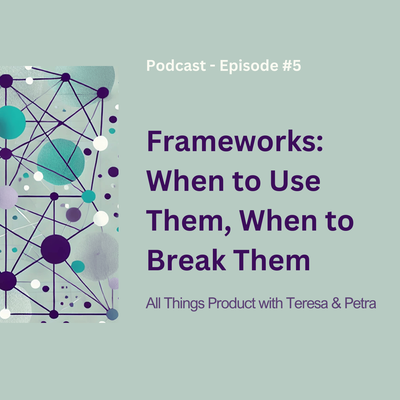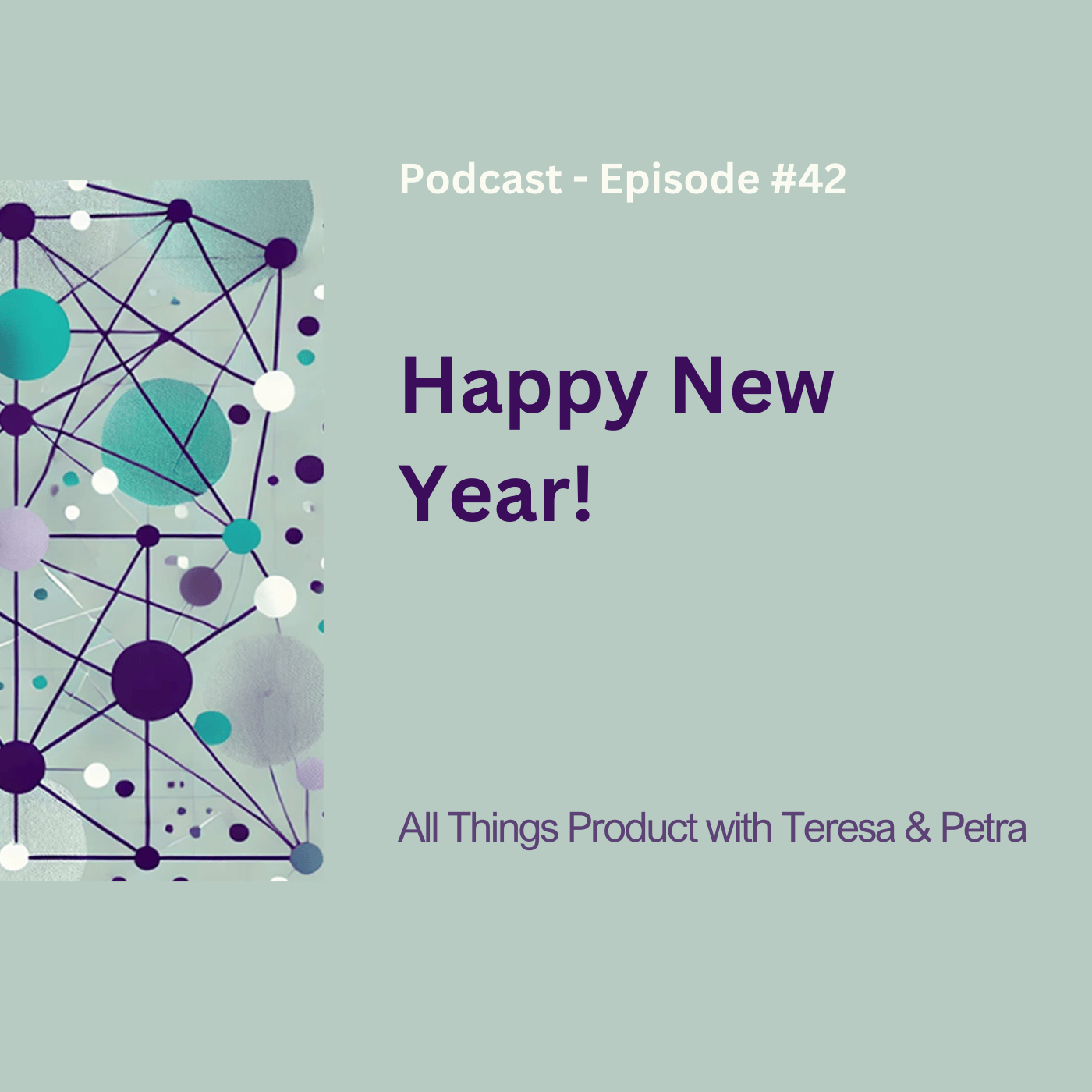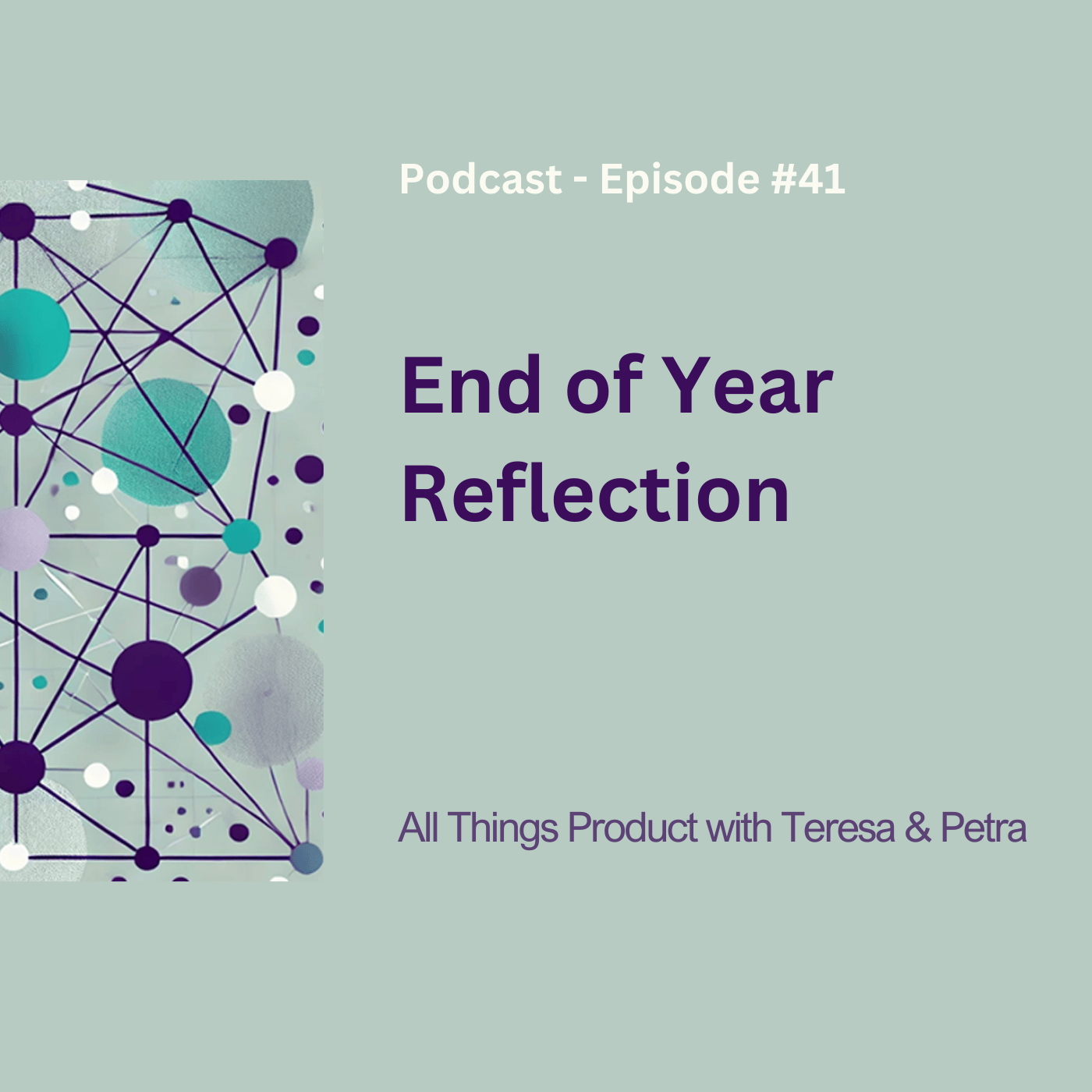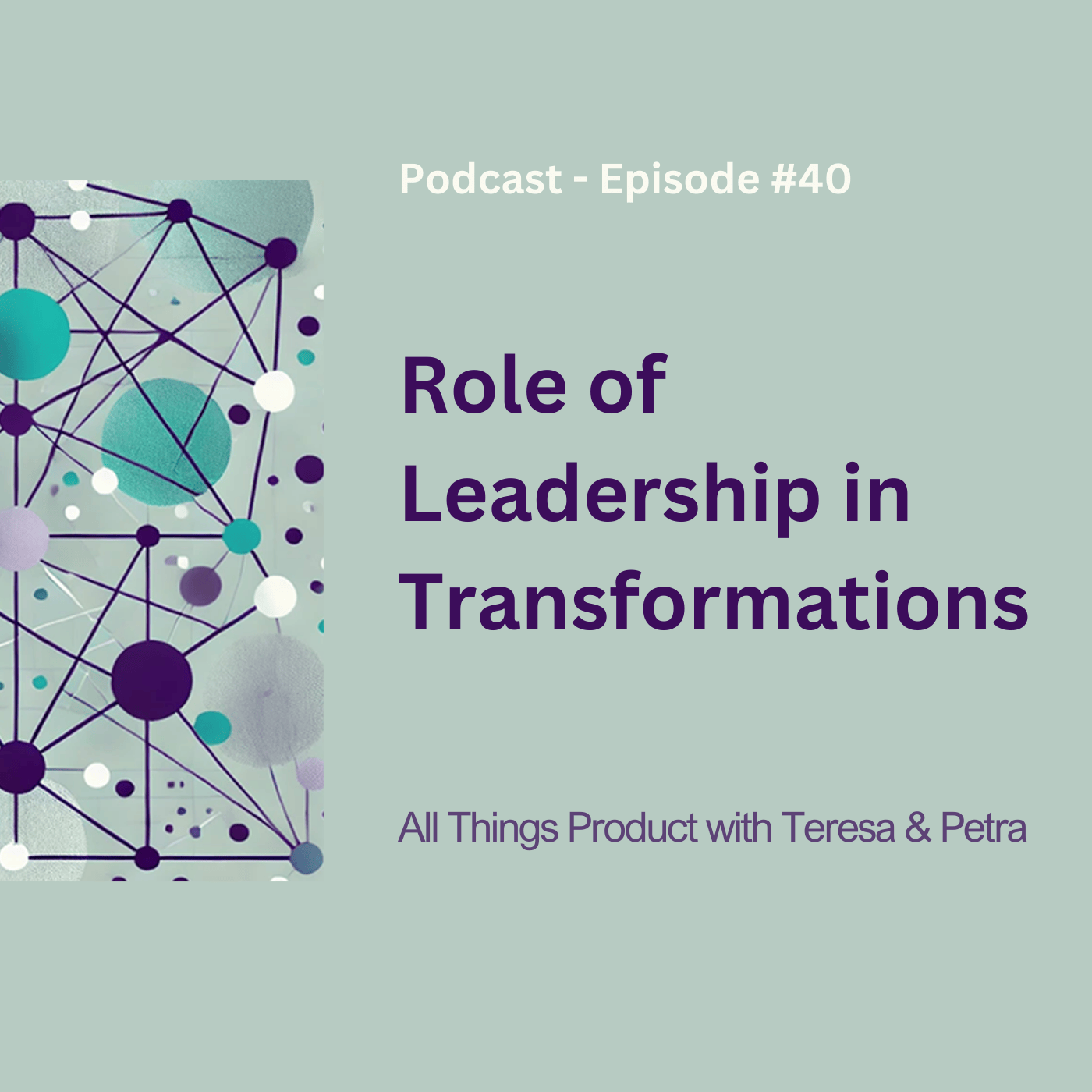Frameworks: When to Use Them, When to Break Them - All Things Product Podcast with Teresa Torres & Petra Wille

Listen to this episode on: Spotify | Apple Podcasts
Frameworks are everywhere in product management, from Business Model Canvases to Opportunity Solution Trees to Jobs to Be Done, and they promise structure, clarity, and efficiency. But what happens when they become rigid recipes that stifle creativity and slow down progress? In this episode, Petra Wille and Teresa Torres explore the pros and cons of product frameworks and share how to make them work for you—rather than against you.
Join us as we discuss:
✅ Why frameworks are helpful when you’re learning but can hold you back as you gain experience
✅ How to adapt frameworks to fit your team’s needs and context
✅ When it’s time to break free from a framework and create your own
✅ Why the real value of frameworks lies in sparking meaningful conversations—not in filling out every box
✅ How to avoid the trap of treating frameworks as rigid recipes and instead use them as scaffolding for learning
Whether you’re new to product management or a seasoned pro, this conversation will help you use frameworks more effectively, avoid common pitfalls, and find the freedom to innovate.
Key Takeaways:
Frameworks are helpful, but they’re not the answer to everything.
- Frameworks provide structure and guidance, especially for beginners.
- The mistake is treating them as rigid recipes rather than flexible tools.
- The real value lies in sparking conversations, not just filling out the canvas.
Adapt frameworks to fit your team’s context.
- There’s no one-size-fits-all solution. Every team and organization is unique.
- Learn the framework first, then adapt it to your needs.
- Don’t be afraid to freestyle and connect the dots in a way that makes sense for your team.
Break free when a framework no longer serves you.
- Frameworks are scaffolding for learning—they’re meant to be outgrown.
- If a framework is slowing you down or feels like a checkbox exercise, it’s time to break free.
- The goal is to build the skills the framework teaches, not to follow it forever.
Frameworks are conversation starters.
- The value of a framework is in the conversations it initiates.
- It’s not about filling in every blank but about aligning your team and having the right discussions.
- If conversations aren’t happening, the framework isn’t serving its purpose.
Start with the framework, then make it your own.
- It’s okay to start with a structured approach, especially when learning.
- As you gain experience, feel free to adapt, remix, or create your own frameworks.
- Experimentation and iteration are key to making frameworks work for you.
Resources & Links:
- Follow Teresa Torres: https://ProductTalk.org
- Follow Petra Wille: https://Petra-Wille.com
Mentioned in the episode:
- Business model canvas
- Petra’s PM Wheel
- Scrum
- Jobs to Be Done
- Opportunity Solution Trees: Visualize Your Discovery to Stay Aligned and Drive Outcomes
- User Story Mapping: Discover the Whole Story, Build the Right Product by Jeff Patton
- Impact Mapping
- Continuous Discovery Habits
Join the Conversation:
Have thoughts on this episode? Leave a comment below.



